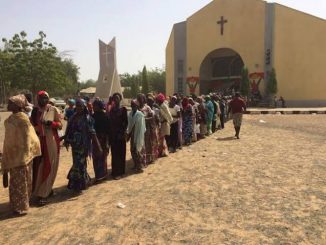
In the scorching summer of 2023, extreme heat waves have swept the globe, shattering temperature records and posing a severe threat to human lives and the environment.
The world recently experienced its hottest day ever recorded, with the average global temperature surpassing the previous record.
Heat-Related Deaths on the Rise in Africa
Authorities report a surge in heat-related deaths as temperatures soar above 40°C (104°F) in many regions, with Africa being notably affected due to its equatorial regions experiencing some of the highest temperatures on the planet.
WiseVoter Institute Reveals the Hottest African Countries in 2023
ALSO READ: Thousands flee homes, hotels in Greece as fires spread
The WiseVoter Institute has compiled data revealing the 10 hottest African countries in 2023. These countries are facing unique challenges due to the extreme heat. Here are some key highlights:
Burkina Faso
Located in West Africa, Burkina Faso is facing a serious situation with temperatures at 84.67°F threatening agriculture, which is the main livelihood. Frequent droughts risk food security. Local communities are adopting water conservation practices and growing drought-resistant crops.
Mali
Mali is experiencing scorching temperatures of 84.58°F (above 40°C), posing severe health risks and leading to a rise in heat-related deaths. In response, the government has implemented action plans and established cooling centres in urban areas to ensure citizen safety.
Senegal
With scorching heat waves at 84.04°F, Senegal has ramped up efforts to combat climate change by investing in renewable energy sources.
Mauritania
Mauritania faces year-round temperatures reaching 83.88°F. In addressing these challenges, the country has partnered with international organizations to focus on renewable energy solutions and sustainable fishing practices.
Djibouti
Djibouti, known as one of the hottest countries in the world, is facing pressing issues of heat-related health risks and water scarcity with temperatures reaching 83.3°F. The nation is working on harnessing geothermal energy and implementing innovative desalination techniques to secure its water supply.
The Gambia
The Gambia experiences an average temperature of 83.05°F. The country encounters distinctive obstacles caused by deforestation and habitat degradation. To combat desertification and encourage biodiversity, the government is proactively engaged in afforestation initiatives and adopting sustainable land management practices.
Guinea-Bissau
Guinea-Bissau experiences an average temperature of 82.49°F. The nation is currently facing challenges posed by increasing sea levels and coastal erosion, which have significant effects on its communities and agricultural areas. In response, Guinea-Bissau is actively undertaking climate-resilient infrastructure projects to protect its coastline and ensure the safety of its people.
Niger
Niger stands at 82.49°F making it one of the hottest countries in Africa, the government is prioritizing sustainable land management and investing in irrigation systems to enhance agricultural productivity.
Benin
Benin – 82.45°F: Benin faces critical heat stress and water scarcity issues. To combat these challenges, the country is promoting water conservation and implementing climate-smart agriculture practices to adapt to rising temperatures.
South Sudan
South Sudan is experiencing scorching temperatures at 82.35°F, intensifying its pre-existing challenges, such as conflict and food insecurity. In response to these pressing issues, the country is partnering with international organizations to foster sustainable agricultural practices and enhance climate resilience.




